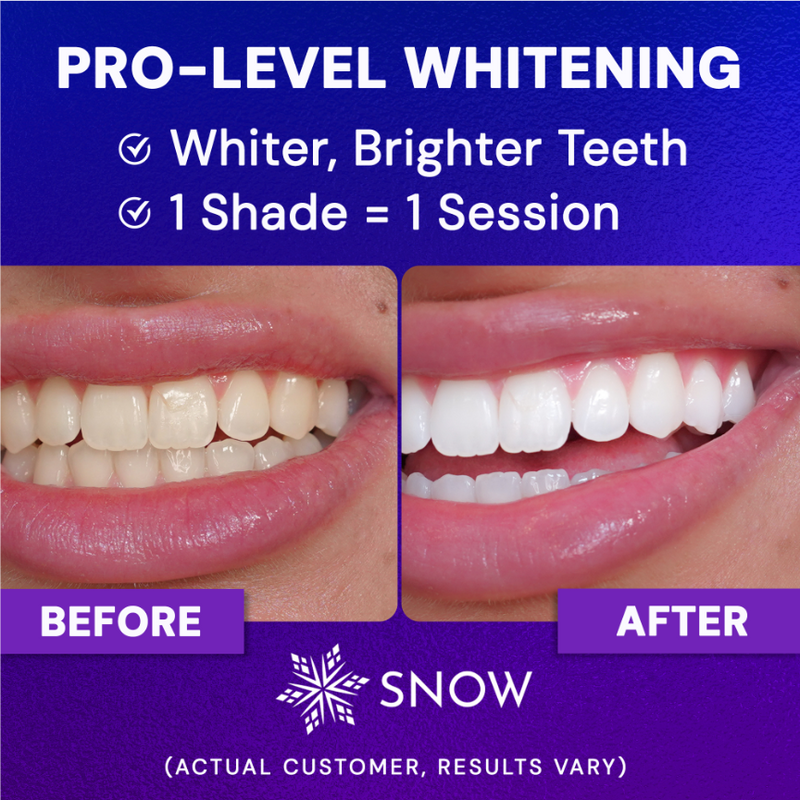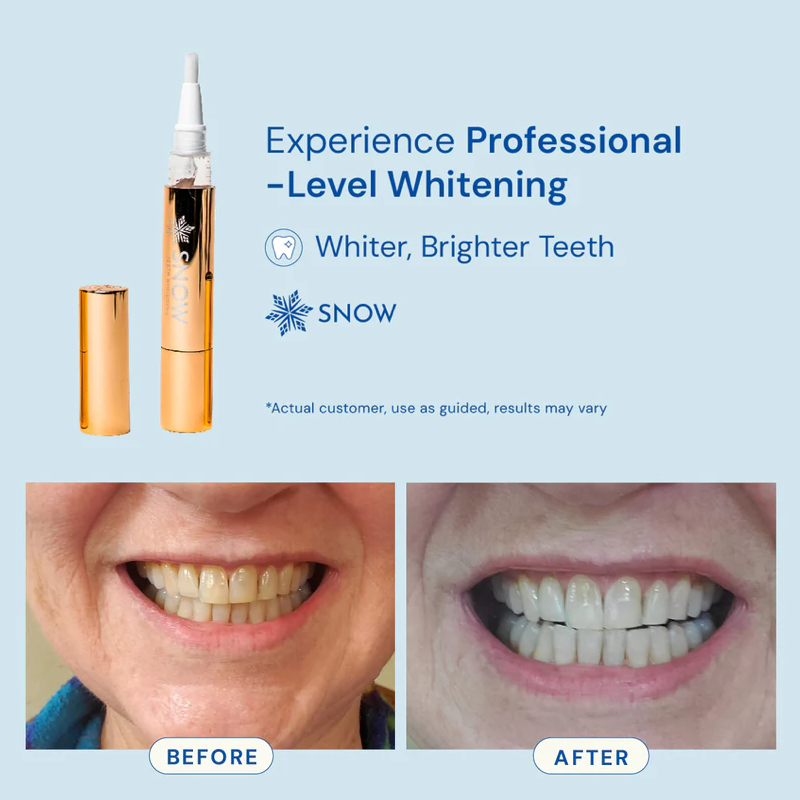If you’ve been experiencing painful gums while eating, drinking, brushing, or flossing, you may wonder what’s causing it and how to treat it. Tooth and gum pain can have many different causes and could be a sign of infection, irritation, or injury to the gums and teeth.
Although it’s typically temporary, sore gums can feel debilitating and may require dental treatment to prevent more severe complications. Luckily, there are many ways to find relief from gum pain and treat the underlying cause.
In this blog, we’ll discuss some of the most common causes of gum pain, popular dental treatments, and helpful home remedies to find some relief.
Causes of pain in gums
Many factors can cause soreness, bleeding, or pain in gums – but they don’t all require a trip to the dentist. Familiarizing yourself with these different causes can help you learn how to relieve the pain at home or help your dentist make a better diagnosis. The most common causes of gum pain include:
Rough Brushing or Flossing
It’s important to brush and floss your teeth twice daily for optimal dental health. However, brushing or flossing too vigorously or too frequently can irritate and even damage your gums, especially if you use a hard-bristled toothbrush.
If your gums hurt or bleed after brushing, try switching to a toothbrush with soft bristles. It will clean your teeth just as well, and the American Dental Association recommends soft-bristled toothbrushes for being less harsh on the gums.
Canker Sores
Canker sores, also called mouth ulcers, are small, painful sores that appear inside the mouth, often on the gums or inside the cheeks. These sores are noncontagious but can cause serious gum pain.
The cause of canker sores is typically unknown. However, they often result from an injury to the mouth or a viral or bacterial infection. Additionally, people with autoimmune diseases are more likely to develop canker sores.
While there is no specific treatment, canker sores tend to disappear on their own within 14 days. There are also over-the-counter treatment options available, including Chlorhexidine mouthwashes and topical medications like Orajel. But, if you have a canker sore that lasts more than three weeks, it’s best to consult your dentist for a diagnosis and treatment.
Burns, Cuts, or Injuries
A simple cut or injury often causes gum pain. For example, food and other objects can sometimes cause minor abrasions on the gums.
You might also accidentally bite down on your gums, causing bleeding and irritation. In addition, braces and other dental hardware, like dentures and retainers, can cause minor gum injuries.
Likewise, many people burn their gums on hot foods like pizza or coffee, then forget about it. Later, the burned area can cause redness and irritation. Fortunately, the gum tissue will usually heal on its own within two weeks.
Gum Disease or Gingivitis
The most frequent cause of painful gums is gum disease or infection. The mildest form of gum disease, gingivitis, can be described as the inflammation of the gums and affects about 50% of adults in the U.S.
The most common cause of gingivitis is a buildup of plaque on the teeth and gums, leading to gum pain and irritation. This is typically the result of poor oral hygiene, including failing to floss or brush your teeth twice daily.
If you catch it early, gingivitis can be easily reversed by implementing good oral health habits and being sure to remove plaque from the teeth and around the gumline properly.
However, if left untreated, gingivitis can progress to a more serious gum disease called periodontitis or periodontal disease, leading to severe infections and tooth or bone loss.
Cavities
Cavities, also known as tooth decay or caries, are permanently damaged areas in the hard surfaces of teeth that eventually develop into tiny holes or openings in the enamel. If cavities are left untreated, they get larger and affect deeper layers of the teeth, which often causes intense gum pain, bleeding gums, and severe infections.
Tooth decay may be caused by various factors, including a high sugar diet and poor oral hygiene. The best cavity prevention method is a good oral hygiene routine, including brushing and flossing regularly and scheduling biannual dental checkups.
Tooth Abscess
A bacterial infection in the root of a tooth can become so severe that it causes an abscess or a pus-filled sac. Tooth abscesses often result in swollen, tender gums and intense pain. They can also cause serious complications for other parts of the body. So, seeing a dentist as soon as possible is essential if you suspect you have an abscess.
Hormonal Changes
Hormonal shifts, especially in women, can cause many changes in the teeth and gums. For example, during pregnancy, it’s common for women to experience swelling, bleeding, and pain in the gums.
Likewise, the influx of hormones before a woman’s menstrual period can sometimes cause their gums to become swollen and more likely to bleed. Finally, some women find that their gums become unusually dry during menopause, resulting in soreness and a higher chance of bleeding.
Common accompanying symptoms of gum pain
Although gum pain is reason enough to be concerned about your oral health, there are often many symptoms that accompany gum pain and can point to a more serious underlying condition, including:
- Inflamed, enlarged or swollen gums
- Brown or black gums
- Bleeding gums
- Fever or chills
- Bad breath
- Difficulty breathing
- Pain while chewing
Gum pain relief and treatments
Your treatment for gum pain will depend on its underlying cause. For instance, if the reason is gingivitis, a dentist will typically recommend a professional deep cleaning to remove plaque and tartar from beneath the gumline. They may also prescribe an antibacterial mouthwash to kill excess bacteria and prevent future plaque buildup.
Dental surgery may be required to repair bone loss if a person has a severe gum infection or periodontal disease. This might include bone and tissue grafting to promote new, healthy tissue growth. Similarly, some severe infections may lead to an abscess, which typically requires treatment with root canal therapy.
Other ways of reducing gum pain may be to stop smoking, improve your nutrition, or even reduce stress. However, one of the most critical steps is implementing an effective oral hygiene routine to help nurture your gums back to good health.
How to soothe sore gums at home
If you have sore gums and aren’t sure of its cause, you should see a dentist for a checkup. But in the meantime, there are several home remedies you can try to help reduce gum pain and improve gum health, including:
- Taking over-the-counter pain medication, such as ibuprofen
- Avoiding sharp, acidic, and spicy foods
- Brushing and flossing more carefully
- Applying clove oil to the gums
- Gargling salt water
Preventing tooth and gum pain
Although some causes of sore gums may be out of your control, including hormonal changes and accidental injuries, there are many steps you can take to improve your oral health. Specifically, practicing good oral hygiene is the best way to prevent gum pain and other dental issues.
To keep your teeth and gums healthy and clean, brush your teeth twice daily and floss regularly. It’s also critical to visit the dentist every six months for a checkup and professional cleaning. Finally, other habits such as using mouthwash and avoiding smoking can also help prevent gum disease and infections.
When to see a dentist
You should see a dental healthcare professional if your gum pain is severe, persistent, or recurring.
You may also consider making a dental appointment if the pain occurs alongside other symptoms, including significant swelling, bleeding or inflamed gums, pain while chewing, hot and cold sensitivity, or loose teeth. These symptoms may point to gum disease, which often can't be treated with home remedies.
A dentist can examine your teeth and gums using various techniques, including dental probing and x-rays to check for decay. Once they pinpoint the cause of your pain, they’ll be able to recommend a suitable treatment.
Frequently Asked Questions
How do I get rid of pain in my gums?
For minor gum pain, home remedies may be enough to help you reduce pain and find relief. For example, you can try gargling salt water, taking over-the-counter pain medication, and brushing your teeth more carefully. However, if your gum pain is severe or lasts more than a week or two, it’s best to visit a dentist for a thorough oral exam.
Why is my gum suddenly hurting?
You might be experiencing gum pain or bleeding gums for many reasons, including minor injuries and abrasions, canker sores, or rough brushing and flossing. However, the most common cause is poor oral hygiene leading to gingivitis or cavities. In addition, when plaque is allowed to build up on the teeth and gums, it often causes irritation and may result in more serious oral health problems.
Does gum pain go away?
In some cases, gum pain will go away on its own, mainly if the cause is a minor scrape or burn. However, if the pain is due to gum infection or other more serious conditions, you will require professional dental treatment to relieve the pain and restore healthy gums.
How can I improve my gum health?
Following a good oral hygiene routine, including brushing your teeth twice daily and flossing regularly, is the best way to keep your gums healthy and avoid dangerous infections. It’s also essential to visit the dentist twice per year for a professional cleaning and oral exam.
Summary
Gum pain is a common dental issue that can range in severity from minor irritation to debilitating discomfort. There are many reasons why you might be experiencing sore gums or other dental pain, including gum disease, infection, canker sores and even hormonal changes.
Many of these causes can be avoided by following a healthy oral hygiene routine. However, if you have unexplained or severe gum pain, it’s important to visit a dentist for a checkup. Some reasons for sore gums can have severe consequences without proper treatment, including tooth loss or decay.
While waiting for your appointment, you can relieve sore gums by trying various home remedies, including applying clove oil, gargling with salt water, or taking over-the-counter pain medication, such as ibuprofen.








































































